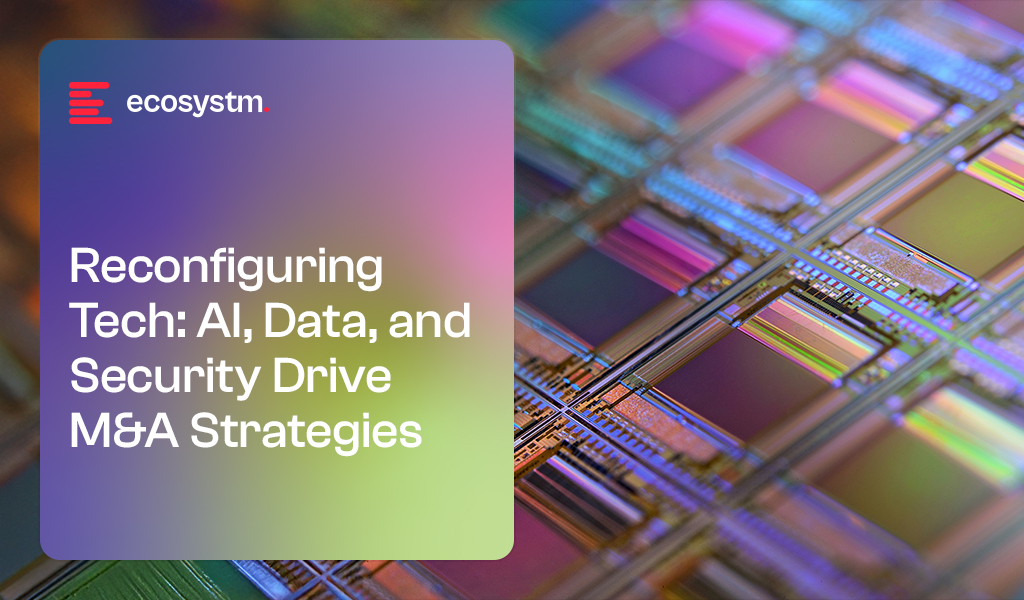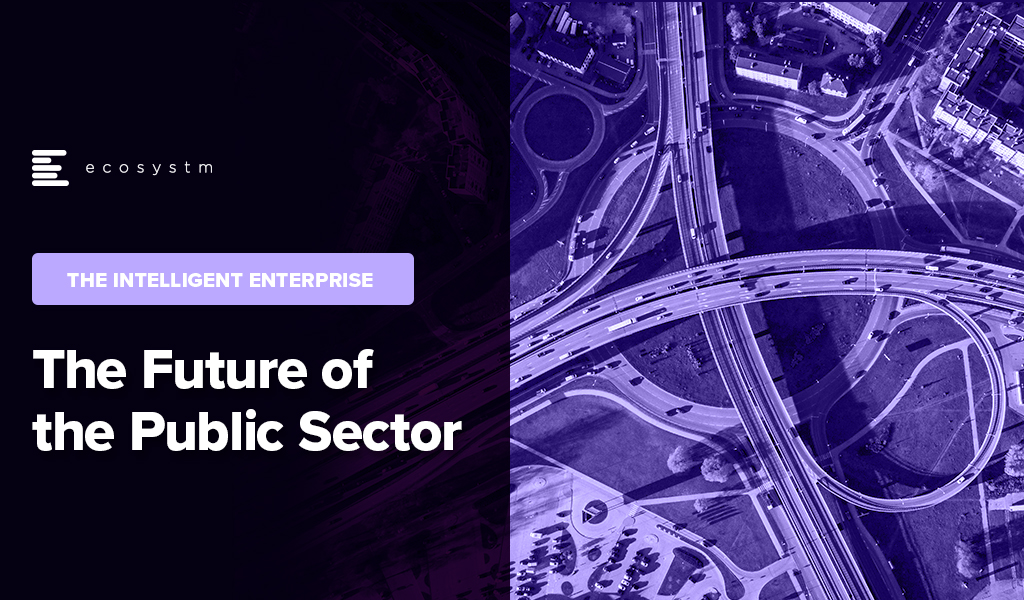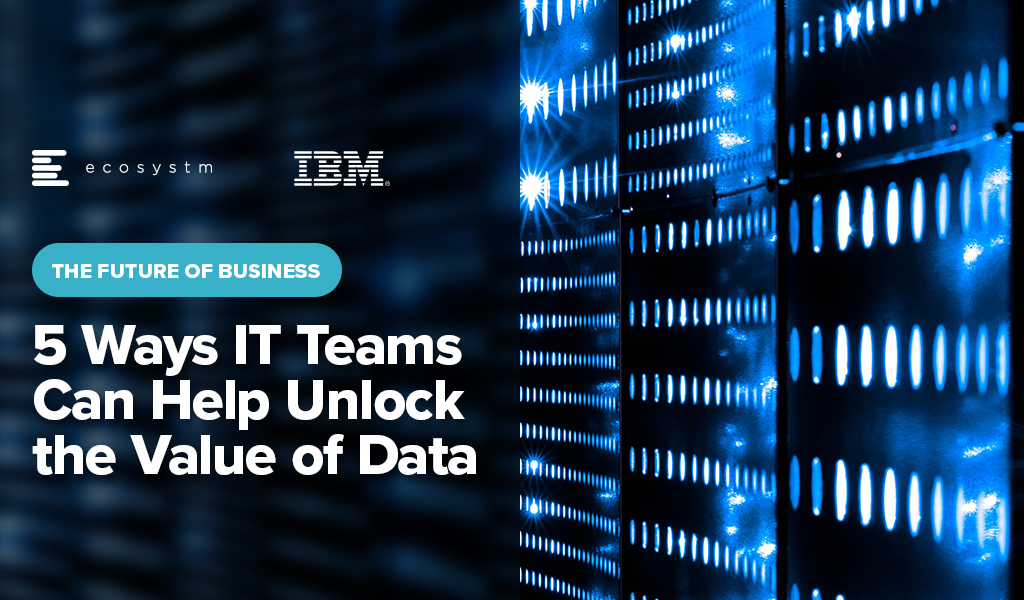The tech industry is experiencing a strategic convergence of AI, data management, and cybersecurity, driving a surge in major M&A activity. As enterprises tackle digital transformation, these three pillars are at the forefront, accelerating the race to acquire and integrate critical technologies.
Here are this year’s key consolidation moves, showcasing how leading tech companies are positioning themselves to capitalise on the rising demand for AI-driven solutions, robust data infrastructure, and enhanced cybersecurity.
AI Convergence: Architecting the Intelligent Enterprise
From customer service to supply chain management, AI is being deployed across the entire enterprise value chain. This widespread demand for AI solutions is creating a dynamic M&A market, with tech companies acquiring specialised AI capabilities.
IBM’s AI Power Play
IBM’s acquisitions of HashiCorp and DataStax mark a decisive step in its push to lead enterprise AI and hybrid cloud. The USD 6.4B HashiCorp deal that got finalised this year, brings Terraform, a top-tier infrastructure-as-code tool that streamlines multi-cloud deployments – key to integrating IBM’s Red Hat OpenShift and Watsonx AI. Embedding Terraform enhances automation, making hybrid cloud infrastructure more efficient and AI-ready.
The DataStax acquisition strengthens IBM’s AI data strategy. With AstraDB and Apache Cassandra, IBM gains scalable NoSQL solutions for AI workloads, while Langflow simplifies AI app development. Together, these moves position IBM as an end-to-end AI and cloud powerhouse, offering enterprises seamless automation, data management, and AI deployment at scale.
MongoDB’s RAG Focus
MongoDB’s USD 220M acquisition of Voyage AI signals a strategic push toward enhancing AI reliability. At the core of this move is retrieval-augmented generation (RAG), a technology that curbs AI hallucinations by grounding responses in accurate, relevant data.
By integrating Voyage AI into its Atlas cloud database, MongoDB is making AI applications more trustworthy and reducing the complexity of RAG implementations. Enterprises can now build AI-driven solutions directly within their database, streamlining development while improving accuracy. This move consolidates MongoDB’s role as a key player in enterprise AI, offering both scalable data management and built-in AI reliability.
Google’s 1B Bet on Anthropic
Google’s continued investment in Anthropic reinforces its commitment to foundation model innovation and the evolving GenAI landscape. More than a financial move, this signals Google’s intent to shape the future of AI by backing one of the field’s most promising players.
This investment aligns with a growing trend among cloud giants securing stakes in foundation model developers to drive AI advancements. By deepening ties with Anthropic, Google not only gains access to cutting-edge AI research but also strengthens its position in developing safe, scalable, and enterprise-ready AI. This solidifies Google’s long-term AI strategy, ensuring its leadership in GenAI while seamlessly integrating these capabilities into its cloud ecosystem.
ServiceNow’s AI Automation Expansion
ServiceNow’s USD 2.9B acquisition of Moveworks completed this year, marking a decisive push into AI-driven service desk automation. This goes beyond feature expansion – it redefines enterprise support operations by embedding intelligent automation into workflows, reducing resolution times, and enhancing employee productivity.
The acquisition reflects a growing shift: AI-powered service management is no longer optional but essential. Moveworks’ AI-driven capabilities – natural language understanding, machine learning, and automated issue resolution – will enable ServiceNow to deliver a smarter, more proactive support experience. Additionally, gaining Moveworks’ customer base strengthens ServiceNow’s market reach.
Data Acquisition Surge: Fuelling Digital Transformation
Data has transcended its role as a byproduct of operations, becoming the lifeblood that fuels digital transformation. This fundamental shift has triggered a surge in strategic acquisitions focused on enhancing data management and storage capabilities.
Lenovo Scaling Enterprise Storage
Lenovo’s USD 2B acquisition of Infinidat strengthens its position in enterprise storage as data demands surge. Infinidat’s AI-driven InfiniBox delivers high-performance, low-latency storage for AI, analytics, and HPC, while InfiniGuard ensures advanced data protection.
By integrating these technologies, Lenovo expands its hybrid cloud offerings, challenging Dell and NetApp while reinforcing its vision as a full-stack data infrastructure provider.
Databricks Streamlining Data Warehouse Migrations
Databricks’ USD 15B acquisition of BladeBridge accelerates data warehouse migrations with AI-driven automation, reducing manual effort and errors in migrating legacy platforms like Snowflake and Teradata. BladeBridge’s technology enhances Databricks’ SQL platform, simplifying the transition to modern data ecosystems.
This strengthens Databricks’ Data Intelligence Platform, boosting its appeal by enabling faster, more efficient enterprise data consolidation and supporting rapid adoption of data-driven initiatives.
Cybersecurity Consolidation: Fortifying the Digital Fortress
The escalating sophistication of cyber threats has transformed cybersecurity from a reactive measure to a strategic imperative. This has fuelled a surge in M&A aimed at building comprehensive and integrated security solutions.
Turn/River Capital’s Security Acquisition
Turn/River Capital’s USD 4.4 billion acquisition of SolarWinds underscores the enduring demand for robust IT service management and security software. This acquisition is a testament to the essential role SolarWinds plays in enterprise IT infrastructure, even in the face of past security breaches.
This is a bold investment, in the face of prior vulnerability and highlights a fundamental truth: the need for reliable security solutions outweighs even the most public of past failings. Investors are willing to make long term bets on companies that provide core security services.
Sophos Expanding Managed Detection & Response Capabilities
Sophos completed the acquisition of Secureworks for USD 859M significantly strengthens its managed detection and response (MDR) capabilities, positioning Sophos as a major player in the MDR market. This consolidation reflects the growing demand for comprehensive cybersecurity solutions that offer proactive threat detection and rapid incident response.
By integrating Secureworks’ XDR products, Sophos enhances its ability to provide end-to-end protection for its customers, addressing the evolving threat landscape with advanced security technologies.
Cisco’s Security Portfolio Expansion
Cisco completed the USD 28B acquisition of SnapAttack further expanding its security business, building upon its previous acquisition of Splunk. This move signifies Cisco’s commitment to creating a comprehensive security portfolio that can address the diverse needs of its enterprise customers.
By integrating SnapAttack’s threat detection capabilities, Cisco strengthens its ability to provide proactive threat intelligence and incident response, solidifying its position as a leading provider of security solutions.
Google’s Cloud Security Reinforcement
Google’s strategic acquisition of Wiz, a leading cloud security company, for USD 32B demonstrates its commitment to securing cloud-native environments. Wiz’s expertise in proactive threat detection and remediation will significantly enhance Google Cloud’s security offerings. This move is particularly crucial as organisations increasingly migrate their workloads to the cloud.
By integrating Wiz’s capabilities, Google aims to provide its customers with a robust security framework that can protect their cloud-based assets from sophisticated cyber threats. This acquisition positions Google as a stronger competitor in the cloud security market, reinforcing its commitment to enterprise-grade cybersecurity.
The Way Ahead
The M&A trends of 2025 underscore the critical role of AI, data, and security in shaping the technology landscape. Companies that prioritise these core areas will be best positioned for long-term success. Strategic acquisitions, when executed with foresight and agility, will serve as essential catalysts for navigating the complexities of the evolving digital world.

Technology is reshaping the Public Sector worldwide, optimising operations, improving citizen services, and fostering data-driven decision-making. Government agencies are also embracing innovation for effective governance in this digital era.
Public sector organisations worldwide recognise the need for swift and agile interventions. With citizen expectations resembling those of commercial customers, public sector organisations face mounting pressure to break down the barriers to provide seamless service experiences.
Read on to find out how public sector organisations in countries such as Australia, Vietnam, the Philippines, South Korea, and Singapore are innovating to stay ahead of the curve; and what Ecosystm VP Consulting, Peter Carr sees as the Future of Public Sector.
Click here to Download ‘The Future of the Public Sector’ as a PDF

In the rush towards digital transformation, individual lines of business in organisations, have built up collections of unconnected systems, each generating a diversity of data. While these systems are suitable for rapidly launching services and are aimed at solving individual challenges, digital enterprises will need to take a platform approach to unlock the full value of the data they generate.
Data-driven enterprises can increase revenue and shift to higher margin offerings through personalisation tools, such as recommendation engines and dynamic pricing. Cost cutting can be achieved with predictive maintenance that relies on streaming sensor data integrated with external data sources. Increasingly, advanced organisations will monetise their integrated data by providing insights as a service.
Digital enterprises face new challenges – growing complexity, data explosion, and skills gap.
Here are 5 ways in which IT teams can mitigate these challenges.
- Data & AI projects must focus on data access. When the organisation can unify data and transmit it securely wherever it needs to, it will be ready to begin developing applications that utilise machine learning, deep learning, and AI.
- Transformation requires a hybrid cloud platform. Hybrid cloud provides the ability to place each workload in an environment that makes the most sense for the business, while still reaping the benefits of a unified platform.
- Application modernisation unlocks future value. The importance of delivering better experiences to internal and external stakeholders has not gone down; new experiences need modern applications.
- Data management needs to be unified and automated. Digital transformation initiatives result in ever-expanding technology estates and growing volumes of data that cannot be managed with manual processes.
- Cyber strategy should be Zero Trust – backed by the right technologies. Organisations have to build Digital Trust with privacy, protection, and compliance at the core. The Zero Trust strategy should be backed by automated identity governance, robust access and management policies, and least privilege.
Read below to find out more.
Download The Future of Business: 5 Ways IT Teams Can Help Unlock the Value of Data as a PDF

In recent years, businesses have faced significant disruptions. Organisations are challenged on multiple fronts – such as the continuing supply chain disruptions; an ongoing energy crisis that has led to a strong focus on sustainability; economic uncertainty; skills shortage; and increased competition from digitally native businesses. The challenge today is to build intelligent, data-driven, and agile businesses that can respond to the many changes that lie ahead.
Leading organisations are evaluating ways to empower the entire business with data, machine learning, automation, and AI to build agile, innovative, and customer-focused businesses.
Here are 7 steps that will help you deliver business value with data and AI:
- Understand the problems that need solutions. Before an organisation sets out on its data, automation, and AI journey, it is important to evaluate what it wants to achieve. This requires an engagement with the Tech/Data Teams to discuss the challenges it is trying to resolve.
- Map out a data strategy framework. Perhaps the most important part of this strategy are the data governance principles – or a new automated governance to enforce policies and rules automatically and consistently across data on any cloud.
- Industrialise data management & AI technologies. The cumulation of many smart, data-driven initiatives will ultimately see the need for a unified enterprise approach to data management, AI, and automation.
- Recognise the skills gap – and start closing it today. There is a real skills gap when it comes to the ability to identify and solve data-centric issues. Many businesses today turn to technology and business consultants and system integrators to help them solve the skills challenge.
- Re-start the data journey with a pilot. Real-world pilots help generate data and insights to build a business case to scale capabilities.
- Automate the outcomes. Modern applications have made it easier to automate actions based on insights. APIs let systems integrate with each other, share data, and trigger processes; and RPA helps businesses automate across applications and platforms.
- Learn and improve. Intelligent automation tools and adaptive AI/machine learning solutions exist today. What organisations need to do is to apply the learnings for continuous improvements.
Find more insights below.
Download The Future of Business: 7 Steps to Delivering Business Value with Data & AI as a PDF




































